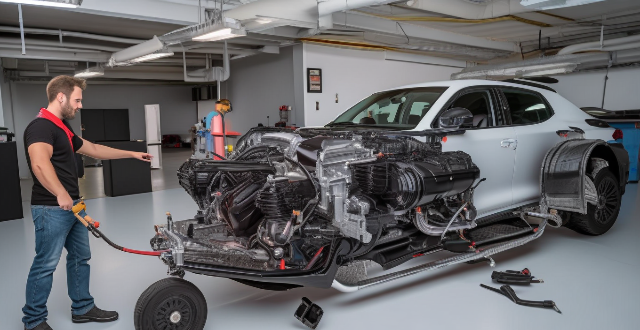The necessity of using premium gasoline for car maintenance depends on factors such as engine type, manufacturer recommendations, and cost considerations. High-performance or turbocharged engines may require premium gas to avoid knocking and ensure optimal performance. However, most regular production cars are designed to run efficiently on regular gasoline without the need for premium. Using premium gas when not required can be an unnecessary expense, as it is more expensive than regular gas and won't provide added performance or efficiency benefits for vehicles that don't require it. It's important to check your owner's manual for manufacturer guidelines on the appropriate gasoline for your vehicle, as deviating from these could impact warranty coverage and optimal operation. Additionally, consider the environmental impact of your fuel choices, as using only what's necessary conserves resources and supports sustainable practices.

Is it Necessary to Use Premium Gas for My Car's Maintenance?
Introduction
The question of whether to use premium gasoline for car maintenance is a common one among vehicle owners. This discussion will explore the factors that influence this decision and provide insights into whether using premium gas is necessary for your car's upkeep.
Understanding Gasoline Grades
Before diving into the necessity of premium gas, let's first understand the different grades of gasoline:
- Regular: Has an octane rating around 87 and is the most commonly used gasoline.
- Mid-grade: Offers an octane rating between regular and premium, typically around 91 or 92.
- Premium: Has the highest octane rating, usually around 93 or higher, and is designed to provide optimal performance in high-performance engines.
Octane Ratings and Engine Performance
Octane ratings measure a gasoline's resistance to engine knocking (pre-ignition), which can damage internal components. Higher octane fuels are less likely to cause knocking. However, not all engines require high octane fuel:
- High-performance or Turbocharged Engines: These may recommend or require premium gas to avoid knocking and ensure optimal performance.
- Regular Production Cars: Most vehicles are designed to run efficiently on regular gasoline without the need for premium.
Key Points:
- Engine Knocking: Using lower octane gas than recommended can lead to knocking, reducing engine lifespan.
- Performance Enhancement: For cars requiring premium gas, using it can enhance performance and efficiency.
Cost Considerations
Using premium gas when not required can be an unnecessary expense. Comparing costs:
- Increased Cost: Premium gas is more expensive than regular gas, sometimes costing up to $0.50 or more per gallon higher.
- Cost-Benefit Analysis: If your car doesn't require premium gas, you won't see a return on the extra investment.
Financial Impact:
- Long-Term Expenses: Over time, using premium gas unnecessarily can add up to significant additional costs.
- No Direct Benefit: For vehicles not requiring premium, there's no added performance or efficiency benefit from using it.
Manufacturer Recommendations
Car manufacturers provide guidelines on the appropriate gasoline for each vehicle model. It's important to:
- Check Your Owner's Manual: This will specify the recommended octane rating for your car.
- Follow Manufacturer's Advice: Using the recommended gasoline helps maintain your warranty and ensures optimal vehicle operation.
Importance of Manufacturer Guidelines:
- Warranty Considerations: Deviating from manufacturer recommendations could impact warranty coverage.
- Optimal Operation: Following guidelines ensures your car operates as designed by the manufacturer.
Environmental Impact
While the environmental impact isn't directly related to car maintenance, it's worth considering the sustainability aspect of gasoline choices:
- Resource Extraction: Producing higher octane fuels generally requires more resources and energy.
- Reduction in Emissions: Running your car on the correct gasoline can help optimize fuel combustion, potentially reducing emissions.
Ecological Footprint:
- Conservation: Using only what's necessary conserves resources and supports sustainable practices.
- Emission Reduction: Optimal fuel usage can contribute to lower vehicle emissions.
Conclusion
In conclusion, the necessity of using premium gas for your car's maintenance depends on several factors, including your car's engine type, manufacturer recommendations, and cost considerations. For most standard vehicles, regular gasoline is sufficient and cost-effective. However, for high-performance engines or those specified by the manufacturer, premium gas may be necessary to maintain optimal performance and protect your investment. Always refer to your owner's manual and consider the environmental implications of your fuel choices.